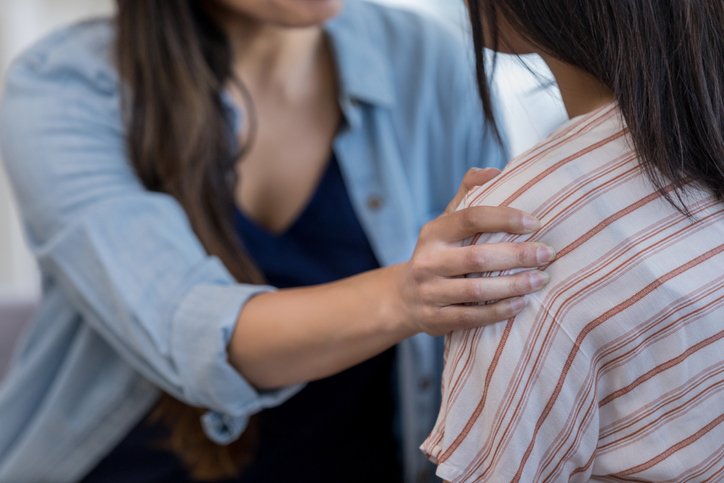
<!DOCTYPE html PUBLIC "-//W3C//DTD HTML 4.0 Transitional//EN" "http://www.w3.org/TR/REC-html40/loose.dtd“>
By Dr. Dean Beckloff | Contributor
COVID-19 has drastically disrupted our lives, threatening not only our daily routines but also our livelihoods. Many have felt the emotional toll of not only hearing about the disease but also witnessing the struggles of those affected and, tragically, those who have lost their battle against it. There is a significant amount of conflicting information circulating, heightening our stress and complicating our desire to keep our loved ones safe and our children supported during this time.
Our youth—teens and college students—are experiencing these challenges in particularly intense ways. Significant milestones like proms, crucial rites of passage for high schoolers, have been stripped away. Many seniors are facing unconventional graduations or no celebrations at all. Students have been confined to remote learning, and while schools have made efforts to adapt, many students’ academic achievements are suffering. For instance, I recently spoke with a talented high school soccer player whose training has been reduced to exercises sent by his club coach, raising concerns about his chances for an athletic scholarship.
College students are experiencing a similar upheaval: sent home and transitioned to online classes, they are deprived of the rich social experiences that college life offers. For graduating seniors, this disruption erases not just celebrations and graduation photos with friends and faculty, but also the chance to say proper goodbyes to their peers and roommates.
The fear of missing out has transitioned into a harsh reality, with students mourning not only missed social events but the profound impact on their aspirations and dreams. Feelings of anxiety, stress, anger, and disappointment permeate their experiences, coupled with guilt for grieving their losses when faced with greater tragedies brought on by the virus. Yet it is crucial for them to understand that their feelings of loss and grief are valid. While their losses may not equate to job losses or the death of loved ones, they are nonetheless real and impactful. As parents, we observe the stress on ourselves and, more importantly, recognize the struggles facing our children. How can we assist them in navigating through this?
Life is indeed fraught with significant challenges. As parents, it’s our responsibility to model resilience to our children. We must show them how to rise up, brush themselves off, and hold onto hope. It’s crucial to foster a positive outlook as we progress, encouraging them to grieve their losses while also motivating them to move forward.
As we navigate this journey, here are some reflections to consider:
-
Be Present for Your Teen or Young Adult During Grief
Acknowledge their loss and allow them to recognize the reality of their grief. Avoid minimizing their feelings with clichés. Allow them to process their emotions of disappointment while gently guiding them toward acceptance when they are ready. -
Normalize Their Experience of Loss
As they progress toward acceptance, it’s helpful to explain that life inherently comes with losses, including dreams that may not be fulfilled. -
Cultivate an Attitude of Gratitude
Encourage them to find joy in the present by appreciating the small, daily blessings in life. This practice, while it may seem trivial, can lead to a deeper sense of fulfillment and a recognition of the beauty around us. The unique time spent together as families during this pandemic may never happen again, and cherishing those moments can create lasting memories. - Recognize and Support the Helpers
As Mr. Rogers once said about looking for helpers in times of tragedy, we have witnessed countless individuals stepping up to support students during this crisis. From medical professionals to school administrators who have made personal visits to celebrate their students, these helpers uplift our spirits. By acknowledging their efforts, we can inspire ourselves and our families to engage in acts of kindness as well.
Perhaps the ultimate lesson here is that each of us has the potential to be a helper. When we believe we can positively impact others’ lives, we foster true self-worth. There are numerous ways we can contribute, whether big or small. It’s vital for our youth to understand that it’s okay to grieve and feel sadness, but they must also find ways to rise, express gratitude, and take the initiative to assist others.
“COVID-19 can’t cancel community. Or generosity. Or kindness.”
—Vanita Halliburton, Founder, Grant Halliburton Foundation
Editor’s Note: Dr. Dean Beckloff is a pediatric therapist, school counselor, and trainer who specializes in supporting children and families navigating divorce and other challenges. He is the founder of the Beckloff Behavioral Center in Dallas. For questions, comments, or consultations, contact Dr. Beckloff at DrBeckloff.com or 972.250.1700.
ABOUT DR. DEAN BECKLOFF:
Dr. Beckloff maintains an active counseling practice in Dallas, focusing on children’s issues and families coping with divorce. He has diverse experience, including teaching, school counseling, and training educators, as well as working at the Center for Play Therapy at the University of North Texas. He is also actively involved in community initiatives aimed at supporting children, with the goal of helping kids and families thrive amidst life’s stressors.






